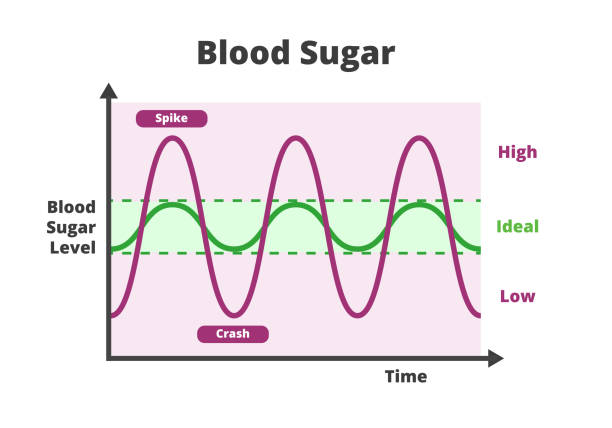
Diabet Daily Routine for Stable Glucose Levels: A Comprehensive Guide
Managing diabetes is a daily commitment. It requires a structured approach. This article offers a detailed guide. It focuses on establishing a diabet daily routine. The goal is to achieve stable glucose levels. This is crucial for overall health and well-being. Understanding and implementing these routines are essential. They empower individuals to take control. They also improve their lives with diabetes.
The information provided is for informational purposes only. It is not a substitute for professional medical advice. Always consult with a qualified healthcare provider. They can address any questions you may have. They can also address your specific medical needs.
Understanding the Importance of a Diabet Daily Routine
A consistent diabet daily routine is fundamental. It helps maintain stable blood glucose levels. This reduces the risk of long-term complications. These complications include heart disease, nerve damage, and kidney problems. A well-structured routine provides several benefits. It also includes improved energy levels and mood. It promotes a sense of control over the condition. It enhances overall quality of life.
Consistency is key. A predictable daily schedule allows for better medication management. It also allows for meal planning and physical activity. This predictability helps the body function optimally. It also helps regulate blood sugar.
Key Components of an Effective Diabet Daily Routine
Monitoring Blood Glucose Levels
Regular blood glucose monitoring is the cornerstone. It provides valuable insights. You can see how your body responds to different factors. These factors include food, exercise, and medication. The frequency of monitoring varies. It depends on the individual’s treatment plan. It also depends on the type of diabetes.
Use a glucose meter. Follow the instructions carefully. Record your readings in a logbook or app. This helps identify patterns. It also helps adjust your treatment plan as needed. [See also: Understanding Blood Glucose Monitoring Devices]
Meal Planning and Nutrition
Nutrition plays a vital role. It influences blood glucose levels significantly. A balanced meal plan is essential. It should include carbohydrates, proteins, and fats. It should also consider portion sizes and timing.
- Carbohydrates: Choose complex carbohydrates. They are digested slowly. They help prevent blood sugar spikes. Examples include whole grains, fruits, and vegetables.
- Proteins: Include lean protein sources. They help stabilize blood sugar. They also promote satiety. Examples include fish, poultry, and legumes.
- Fats: Opt for healthy fats. These include those found in avocados and nuts. Limit saturated and trans fats. They can negatively impact health.
Work with a registered dietitian. They can create a personalized meal plan. They will consider your individual needs and preferences. They will also consider your medication schedule. They will also consider your activity level. Regular meal timing is also important. It helps maintain consistent blood sugar levels.
Physical Activity and Exercise
Regular physical activity is crucial. It improves insulin sensitivity. It also helps lower blood glucose levels. Exercise also offers other health benefits. These include weight management and improved cardiovascular health.
Aim for at least 150 minutes of moderate-intensity exercise. Do this each week. This could include brisk walking, cycling, or swimming. Consult with your doctor before starting any new exercise program. This is particularly important if you have any existing health conditions. Monitor your blood glucose before, during, and after exercise. Adjust your insulin or food intake as needed.
Medication Management
Medication adherence is vital. It ensures effective diabetes management. Follow your healthcare provider’s instructions carefully. Take your medications at the prescribed times. Never adjust your dosage. Do not change your medication without consulting your doctor.
Understand the purpose of each medication. Know its potential side effects. Keep a record of your medications. Include dosages and times. This helps track your medication schedule. It also helps prevent errors.
If you are taking insulin, learn how to administer it correctly. Understand how to store it properly. Regularly check your insulin pens or syringes. Make sure they are working correctly. Ensure you have backup supplies in case of emergencies.
Hydration and Hydration Management
Stay hydrated. It is essential for overall health. It also helps regulate blood sugar levels. Drink plenty of water throughout the day. Avoid sugary drinks. They can cause blood sugar spikes. Monitor your urine color. A pale yellow color indicates adequate hydration.
Stress Management
Stress can significantly impact blood glucose levels. Chronic stress can raise blood sugar. It can also make diabetes management more difficult. Practice stress-reducing techniques. These techniques include deep breathing exercises and meditation.
Engage in activities you enjoy. These activities can help relieve stress. Consider seeking support from a therapist or counselor. They can help you develop coping mechanisms. They can also help manage stress effectively.
Sleep Hygiene
Adequate sleep is crucial. It supports overall health. It also helps regulate blood sugar levels. Aim for seven to eight hours of quality sleep each night. Establish a regular sleep schedule. Create a relaxing bedtime routine.
Avoid caffeine and alcohol before bed. They can disrupt sleep. Ensure your bedroom is dark, quiet, and cool. If you have sleep apnea, seek treatment. It can affect blood glucose control.
Creating a Personalized Diabet Daily Routine
Every individual’s needs are unique. Create a personalized diabet daily routine. Consult with your healthcare team. They can help you develop a plan. This plan should be tailored to your specific needs. It should consider your lifestyle. It should also consider your preferences.
Keep a diabetes journal. Track your blood glucose levels. Also track your meals, exercise, and medications. This helps identify patterns. It also helps make necessary adjustments. Review your routine regularly. Make changes as needed. This ensures it remains effective. It also ensures it fits your evolving needs.
Tips for Staying Consistent
Consistency is key. It is necessary for successful diabetes management. Here are some tips. They can help you stay on track with your diabet daily routine.
- Set realistic goals: Start with small, achievable goals. Gradually increase the complexity of your routine.
- Create a schedule: Develop a daily or weekly schedule. This schedule should include all aspects of your routine.
- Prepare meals in advance: Plan your meals and snacks. Prepare them ahead of time. This saves time and prevents unhealthy choices.
- Find an accountability partner: Share your goals with a friend or family member. Ask them to support and encourage you.
- Join a support group: Connect with others who have diabetes. Share experiences. Learn from each other.
- Celebrate successes: Acknowledge and reward your achievements. This reinforces positive behaviors.
- Be patient and persistent: Diabetes management is a journey. There will be ups and downs. Don’t get discouraged. Keep practicing your diabet daily routine.
When to Seek Medical Attention
Regular checkups are important. They ensure you are effectively managing your diabetes. Contact your healthcare provider immediately. This is important if you experience any of the following symptoms:
- High blood glucose levels (hyperglycemia): Symptoms include increased thirst and frequent urination. They also include blurred vision and fatigue.
- Low blood glucose levels (hypoglycemia): Symptoms include shakiness and sweating. They also include confusion and dizziness.
- Changes in vision: Any sudden changes in vision.
- Foot problems: Any sores or infections on your feet.
- Other concerning symptoms: Any other symptoms that cause you concern.
Prompt medical attention can prevent complications. It can also ensure optimal diabetes management. [See also: Diabetes Complications: Prevention and Management]
Conclusion: Embracing Your Diabet Daily Routine
Establishing a diabet daily routine is a significant step. It empowers individuals with diabetes. It also helps them take control of their health. By following these guidelines, you can achieve stable glucose levels. You can also reduce the risk of complications. You can improve your overall well-being. Remember to work closely with your healthcare team. They can provide personalized guidance. They can also provide support. Embrace your diabet daily routine. Live a healthy and fulfilling life.

